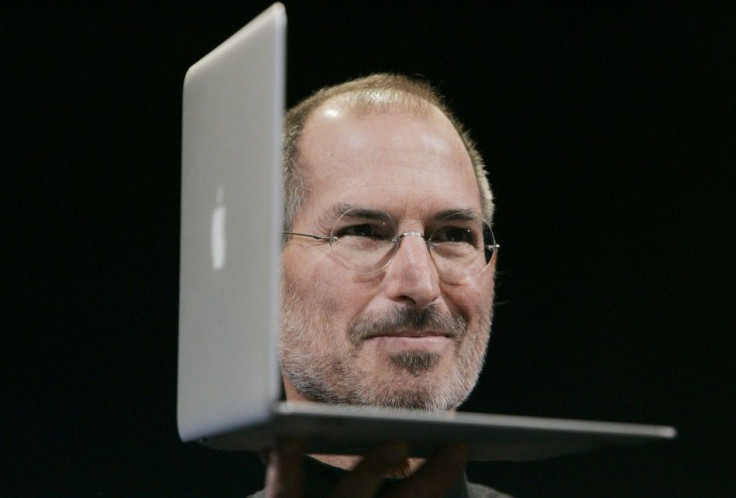iJob Well Done: World Media Pay Tribute to the 'Last Great Tyrant'

The United States claimed Steve Jobs as one its national heroes, but the rest of the world loved him too much to let him go down in history as just an American genius.
Here is a glimpse into how global media looked at Steve Jobs and his legacy:
The Times of India wrote the headline: Steve Jobs Takes iWay To Heaven. It described him as a gizmo-God to geeks and gearheads, but also worshipped by klutzes and luddites alike for introducing beautiful form, elegant function and matchless simplicity to workday electronics.
China Daily reported outpourings of public grief and appreciation of Jobs' legacy all over the country, which Jobs never visited.
In Beijing and Shanghai, emotional diehard fans came to pay tribute to the legendary figure who never came to China, but who changed people's lives here with inventions like the iPod, iPhone and iPad.
Japan's Asahi Shimbun hailed Jobs' inspirational leadership and said Apple's flagship product, the iPhone, is the gold standard in the phone market. The iPhone -- introduced in 2007 with the touchscreen template now adopted by its rivals -- is the gold standard in the booming smartphone market, and its sales have dealt a blow to ambitious plans of many competitors, the paper wrote.
Asahi also said though investors were aware of Jobs' health problems, his loss would result in rivals narrowing the gap with Apple. Steve Jobs' creative spirit was so closely tied to the fortunes of Apple that his death at 56 raises questions about the company's ability to keep its pipeline of transformational products running at such a fast pace.
In India, The Economic Times ran the headline: Steve Jobs: The unparalleled revolutionary 'tyrant'.
It said Jobs had the streak of a bully in him who terrorized competitors. His vision about the future of telecommunication, computers and entertainment was superior to everyone else's and he never bothered whose toes he stepped on.
Maybe it is only the despair people feel about the stagnating American economy, but the announcement of the death of the Apple cofounder Wednesday seemed to mark the end of something: in an era of limits, Mr Jobs was the last great tyrant, the Economic Times wrote.
The report cited an example of Jobs' acerbic tongue when it came to offering a critique of rivals' work. Microsoft and Bill Gates have often experienced the force of Job's wrath.
The only problem with Microsoft is they just have no taste, Jobs said in a typical broadside. They have absolutely no taste. And I don't mean that in a small way, I mean that in a big way, in the sense that they don't think of original ideas, and they don't bring much culture into their products.
The oozing self-confidence of one of the greatest inventors of our time was indistinguishable from arrogance at times, the report said. It cites the example of Jobs once donning the mantle of Jesus Christ at a Halloween party. ... But it was an arrogance tempered by faith in the power of technology to improve lives, the Economic Times said.
The satirical U.S. newspaper The Onion paid Jobs fulsome homage, saying he was the Last American Who Knew What The **** He was Doing. Humorously paraphrasing President Obama's tribute to Jobs, the report said this: This is a dark time for our country, because the reality is none of the 300 million or so Americans who remain can actually get anything done or make things happen. Those days are over.
A Guardian article highlighted Jobs', and Apple's lasting contributions to industrial design. The real achievement of Apple goes to the very heart of aesthetics and the loftiest ideals of design ... In our age, the power of the Internet might seem to lead away from the physical, real, human world, into a dystopia of lost souls staring into screens. The real brilliance of Apple is to make digital culture human, and to keep it in the swim of life, wrote Jonathan Jones.
The Korea Herald poured lavish praise, saying Jobs was a conjurer, a modern magician who reached into tomorrow and came up with things that changed millions of lives.
© Copyright IBTimes 2024. All rights reserved.











